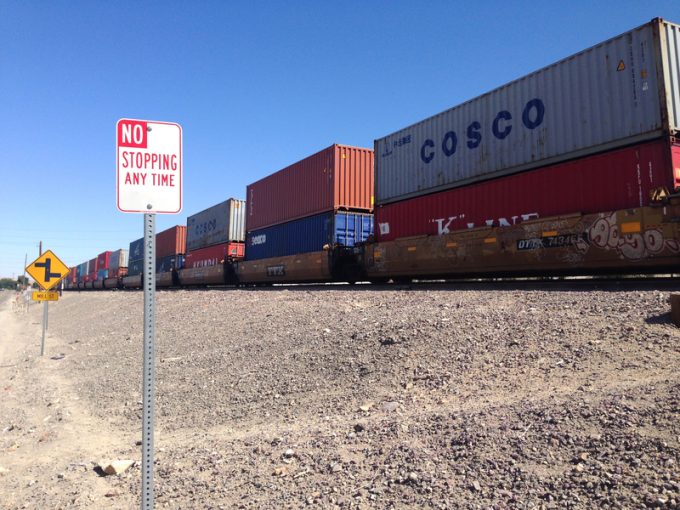East coast port strike looms larger as union takes a tough stance on wages
The International Longshoremen Association (ILA), which represents some 85,000 port workers along the eastern seaboard ...

Hopes for a settlement in the contract negotiations in the US rail industry are on the wane.
And any agreement on the west coast port arena is receding into 2023, amid rising concerns about unrest in cargo labour relations.
The prospect of a smooth implementation of the deal between the railways and unions brokered by the Presidential Emergency Board (PEB) is dimming, after almost 61% of the members of the Brotherhood of Railroad Signalmen (BRS), which represents some 6,000 workers, rejected the ...
Maersk Air Cargo sees volumes fall as it aims for 'margin in favour of revenue'
Keep our news independent, by supporting The Loadstar
Container spot rates diverge: to Europe still falling, but firmer to the US
Hapag-Lloyd won't take bookings if port congestion leaves cargo stranded
Ecommerce likely the front-runner in resurge of transpacific trade after deal
Volume surge and an early peak season? 'Don't celebrate too soon,' warning
China-US trade tariff pause could drive a rebound for transpacific rates
Airfreight players eye new routes as demand on the transpacific nosedives
Service chaos from trade ban with India a problem for Pakistan shippers
Airfreight rates ex-China 'loss-making', but hopes of a trade deal stay high
Indian coastal freight attracts major carriers, but regional tension disrupts
Serious threat to jobs in US logistics as tariffs cause economic 'stagflation'


Comment on this article